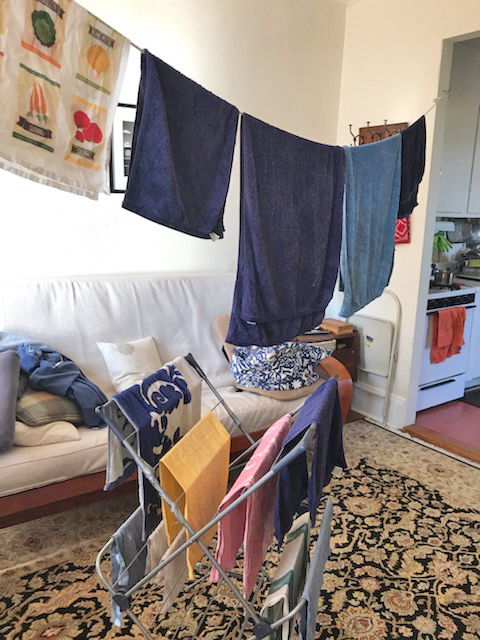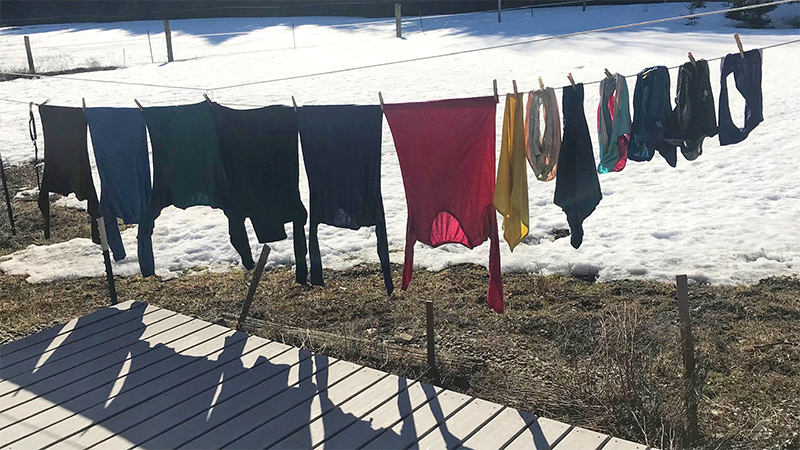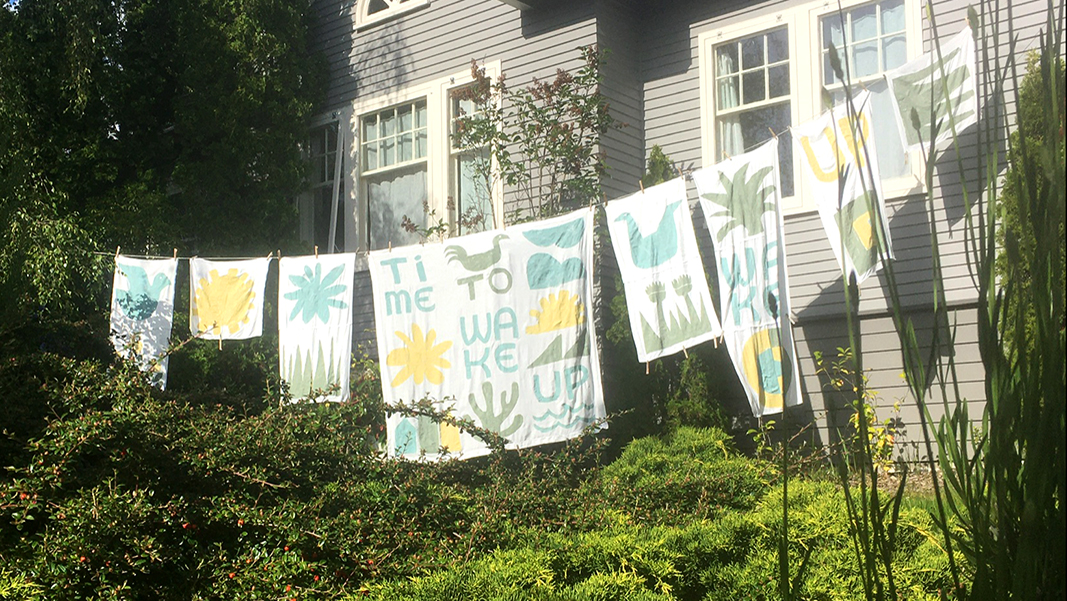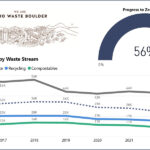
Sally Brown
Many of us have spent more time at home in the last three months than in the last three years. Aside from watching the full 11 seasonl of Cheers before it leaves Netflix, there are things that you can do that may bring you pleasure and can even have a beneficial impact. One of those things is hanging your clothes to dry rather than putting them in the dryer. It is almost summer here and that is prime clothes drying season.
What is the point of hanging clothes out to dry? One big bonus is less ironing — especially if you hang them out on a windy day. The wind whips the wrinkles right out. Next bonus is that wonderful smell. I remember hearing my mother tell me how wonderful it was to hang clothes out to dry, how good they smelled when you folded them. A recent study confirmed this. Scientists dried towels indoors, outdoors and outdoors without sunlight. The towels were put in sealed bags after drying and the air in the bags was analyzed to see what compounds were responsible for that wonderful smell. Outdoor drying resulted in the release of compounds including pentanal hexanal, heptanal, octanal and nonanal. Sounds scary but boy do they smell good.

Air drying your clothes in an apartment gets you the carbon reduction and cost benefits.
To make these you need UV light and water to react with the clothes. That translates to a clothesline. These compounds form bonds with the clothes themselves and that makes the lovely smell last a long time. My end of the season line dried cotton sheets still have that lovely smell when spring comes again and it’s time to change from the flannels.
Finally, the sunlight that dries your clothes has a much lower carbon footprint than the electricity that powers your dryer. Say it takes an hour to dry a load and you use the higher setting. Those 60 minutes run you about 4,000 watts. If you care about cost, a quick search says that it costs about $0.40/load. If you care about carbon those 4,000 watts are the equivalent of 13,648 BTUs. Depending on where your local grid gets its power that comes to anywhere from 1.6 pounds (lbs) of CO₂/per load (natural gas) to 3lbs/load (coal).
Laundry Math
Just for fun and because my laundry for the week is already dry and folded, let’s play around with what that savings amounts to under different scenarios.
If you do 2 loads a week and dry outside for 4 months of the year:
- 2 loads x 1.6 lbs CO₂/load per week x 13 weeks gives you 41.6 lbs of CO₂ savings
- 2 loads x $0.40/load x 13 weeks means you save over $10.
If you do this for the entire year:
- 2 loads x 1.6 lbs CO₂/ load x 52 weeks equals 166 lbs of CO₂
- 2 loads x $0.40 x 52 weeks equals about $42
If you talk ten friends into doing this for those 13 weeks:
- All of a sudden you are talking about 416 lbs of CO₂ and $100 — enough for beer for a block party.

You can dry outside in the winter — the clothes will smell even better.
Line Drying Tips
In other words, these small little actions add up as more and more people take them, or as you take them more often. Some tips if you try this:
- Towels on the line is great in concept and not so good in reality unless you are really into exfoliation. The towels come out not soft so much as like sandpaper.
- If it starts raining there is no need to rush out to bring in your still wet clothes. When the rain stops, they will still get dry.
- You can dry outside in the winter. In fact, I have it on good authority that line dried clothes when it is cold outside smell even better.
- Birds like clotheslines. Do not be upset if you find the occasional bird poop on your clothes. A little spot washing and redrying will take care of it.
- If you live in an apartment with no access to a clothesline, you can still air dry your clothes. They won’t smell so nice but you will get the carbon and the cost benefits.
- When not in use for drying clothes, your clothesline can be used for community outreach.
Sally Brown, BioCycle’s Senior Advisor and long-time Connections columnist, is a Research Professor at the College of the Environment at the University of Washington.
Reference
Pugliese, S., M. F. Jespersen, J.B. Pernov, J. Shenolkikar, J. Nygaard, O.J. Nielsen and M.S. Johnson. 2020. Chemical analysis and origin of the smell of line-dried laundry. Environ. Chem. https://doi.org/10.1071/EN19206













